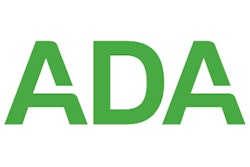
The ADA has informed the U.S. Internal Revenue Service (IRS) that it supports dentist-patient agreements as a form of direct primary care arrangements.
The association is responding to the agency's proposed rule for Certain Medical Care Arrangements, published in the Federal Register on June 10. In a letter delivered to the IRS on August 7, ADA President Chad Gehani, DDS, and Executive Director Kathleen O'Loughlin, DMD, wrote that "most state laws use 'direct primary care agreements' in their statutory language, though they are also commonly referred to as 'in-office plans' or 'membership savings plans,' " and in the last few years, states have turned "toward having dental practices included as part of in-office plans."
"Including dental care in the final rule as being a service eligible towards a tax benefit would categorize services performed by dentists in line with state statutes," Drs. Gehani and O'Loughlin wrote.
More than half of U.S. states have put direct primary care agreement laws into place in the last few years, and at least 16 of these states have included dental service.
"While state laws vary a bit in their particulars, almost all of them include a provision that allows the ability to establish these plans without healthcare providers having to register with the state insurance commissioner," they wrote. "Most laws include provisions ensuring patients are aware that these agreements are not insurance. States also provide direction on how to properly terminate the agreement and how unused funds are to be refunded to patients. The laws are consistent in establishing protections that ensure patients' care is maximized under plans that help manage expenses."

















